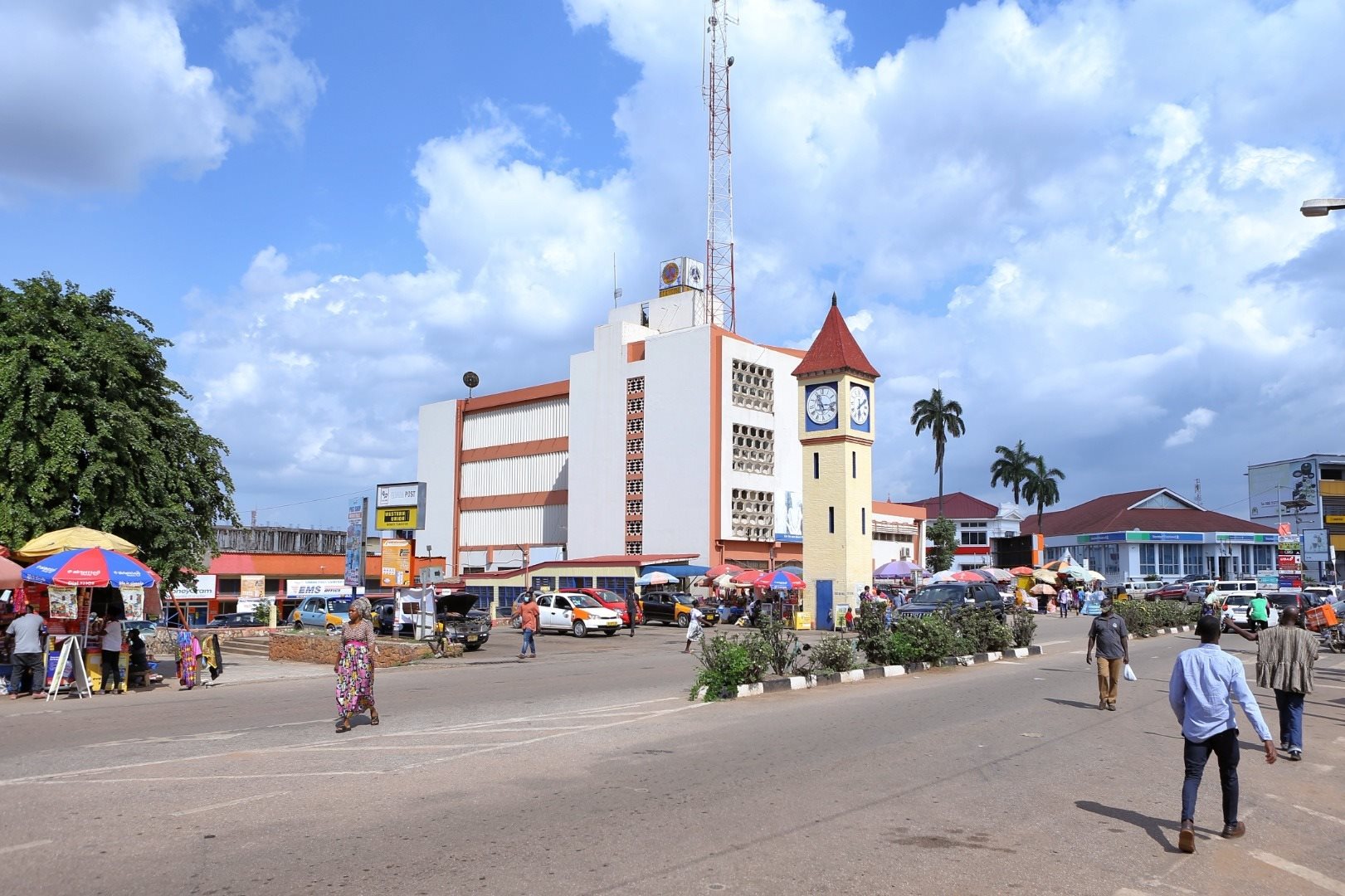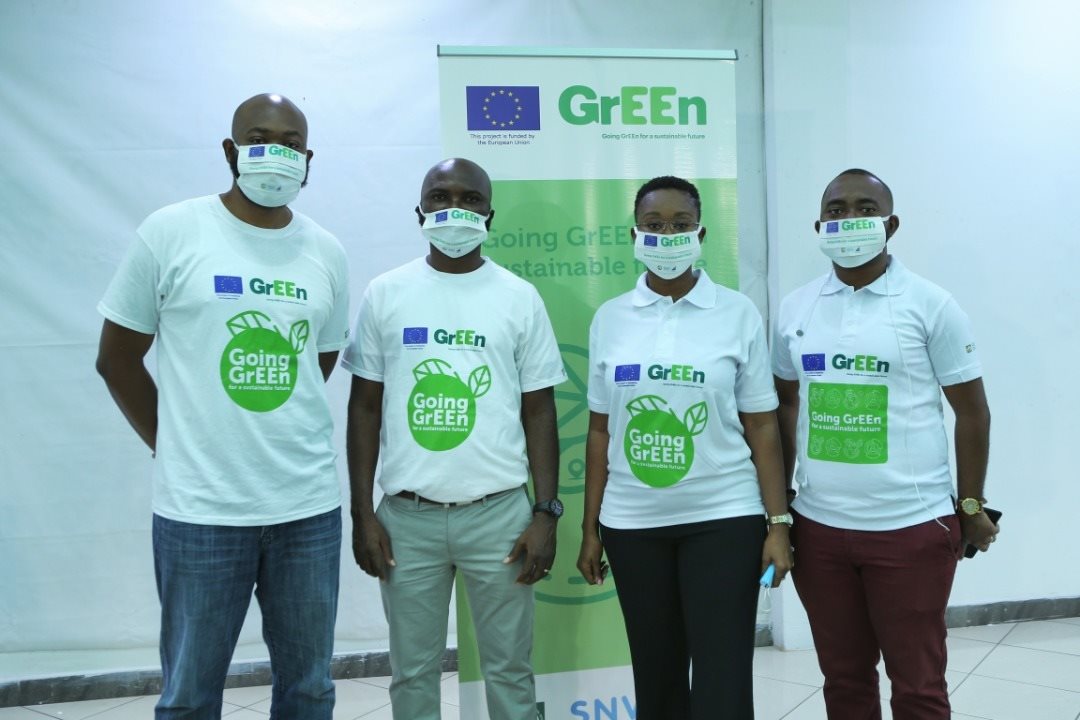Let’s go GrEEn! New GrEEn Project launches in Ghana boosting green jobs and building climate change resilient communities
For more information:
Sara Harris Simpson
Communications Consultant, LoCAL
UN Capital Development Fund
sarah.harris.simpson@uncdf.org
Sophie de Coninck
Programme Manager, LoCAL
UN Capital Development Fund
sophie.de.coninck@uncdf.org
LoCAL.Facility@uncdf.org
More about LoCAL:
https://www.uncdf.org/local/homepage
An online version of the LoCAL brochure is available here:LoCAL Brochure
Tags
In Ghana, the UN Capital Development Fund and our partners this week kicked-off the GrEEn Project in the Ashanti and Western Regions. This innovative action takes a holistic view of action on climate change, promising thousands of green jobs and entrepreneurial opportunities, initiatives to boost financial inclusion and tackle irregular migration while also contributing to building climate change resilient communities.
Youth, women and returning migrants of the Western and Ashanti regions will receive trainings and financial support for green businesses. The project will focus on areas such as plastic waste recycling, clean cookstove production and distribution, organic horticulture and compost production. Selected Micro, Small and Medium-sized Enterprises (MSMEs) will also be supported.
The project has a budget of EU 20,600,000 and is mainly financed by the European Union Emergency Trust Fund (EUTF) for Africa, with contributions from the Embassy of the Kingdom of the Netherlands and the United Nations Capital Development Fund (UNCDF). It is implemented by the SNV Netherlands Development Organisation and UNCDF, in collaboration with the Ghana Ministry of Local Government and Rural Development.

“The idea behind GrEEn is simple: the lack of job opportunities pushes young people to look for a better future far from home. Climate change makes things worse by taking away the main source of livelihood in many communities,” said Diana Acconcia, the European Union Ambassador to Ghana.
“These two challenges are interlinked. We need to address them at the same time if we want to convince young people that they have a future at home and prevent them from embarking on dangerous journeys where they can lose their life,” she added.
The European Union Emergency Trust Fund for stability and addressing root causes of irregular migration and displaced persons in Africa (EUTF for Africa) aims to foster stability and to contribute to better migration management, including by addressing the root causes of destabilization, forced displacement and irregular migration.

The GrEEn Project also draws on systems developed by the Local Climate Adaptive Living Facility, or LoCAL designed and hosted by UNCDF. Notably, LoCAL’s performance-based climate resilience grants that channel finance for climate action to the local level using local government systems.
Angela Yayra Kwashie, the National Project Coordinator of the UNCDF in Ghana, said, “GrEEn officially launched virtually during the European Week in May, but now it’s time to take news of GrEEn to the regions and communities that are going to benefit from this new action.”
The GrEEn project launches amid restrictions on gatherings due to COVID-19, forcing many of the planned activities to go online, with many speeches delivered by video link and participants wearing masks.
Anjo van Toorn, Country Director of SNV said: “The GrEEn project is very topical since it supports youth, women and returning migrants in creating jobs and supporting businesses in a time COVID is impacting hard on local economies.’’ He also noted, “the GrEEn project contributes to climate resilient economies, which can withstand and reduce climate impact on the short and long term; this is essential to community well-being now and later.”